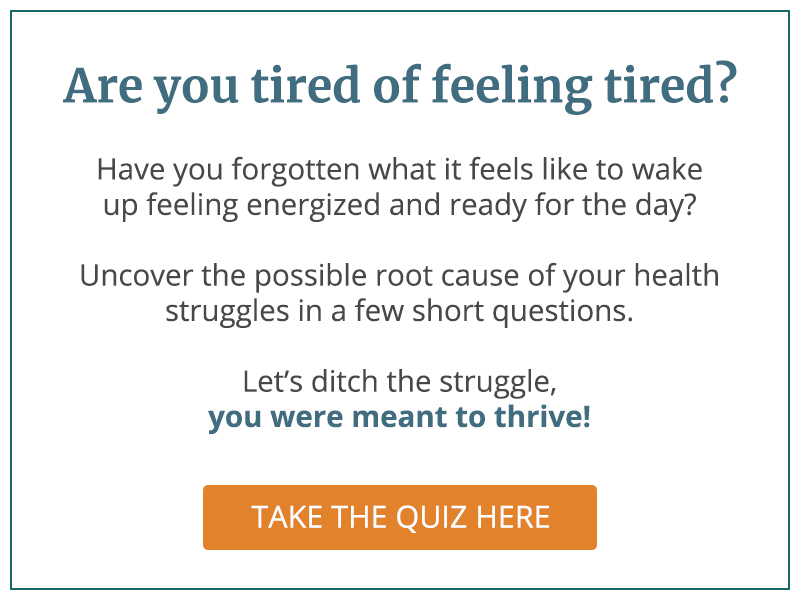Melatonin supplementation has exploded in recent years, with various forms of the supplement cropping up on grocery store shelves. You can even get melatonin in gummy form, which makes it easy to take and even easier to give to children. But there seems to be a lot of confusion about how much melatonin to take. Some patients are concerned and want to know if melatonin and melatonin gummies are safe. And still, others have tried it, hoping to put an end to their insomnia — but want to know why melatonin is not working for them.
Let’s take a look at melatonin and see how much you should take, explore safety concerns, and talk about what to do if melatonin is not working.
How Melatonin Works
Melatonin is a hormone that’s produced naturally by the body to help put you in a sleepy state. Ideally, it’s made in abundance in response to darkness. It is a regulator for your natural sleep and wake cycle. When melatonin is working as it should, it helps your circadian rhythm — helping you get to sleep at night, when production of melatonin should be highest…and waking you up in the morning as production wanes in response to light.
Melatonin, as a supplement isn’t really like a sleeping pill as we would typically think of one. It is more of an underlying support system for sleep. In other words, taking melatonin won’t put you to sleep, but it will help jumpstart the mechanisms that will help you feel sleepy.
The problem with melatonin is that it goes to work when things start to get dark. And these days, we don’t create dark environments easily, especially at night. We can turn lights on throughout the house…and perhaps most confusing to the body…we can look at blue light-emitting screens until all hours of the night.
When your body senses the input from an excess of blue light at night, melatonin production slows. Which means you don’t get that sleepy feeling. Cue insomnia.

How To Increase Natural Melatonin Production
Sometimes, the best way to “supplement” with melatonin is to help production increase naturally.
Since we know melatonin is made in response to darkness, the best thing we can do is to turn out the lights. Which I know is easier said than done…but considering the importance of sleep to your overall health, putting away those phones and not answering emails at night is a small price to pay for getting a restful night’s sleep, right?
Here are a few other things you can do to help make sure your melatonin is surging when you want it to:
- Get plenty of sunshine during the day
- Exercise, but not too close to bedtime
- Wake up and go to sleep at roughly the same time every day (yes, even on weekends!)
- Create a bedtime routine that’s soothing and relaxing
- Try using blue light blocking filters on your phone or computer screen
- Try wearing blue light blocking glasses with yellow or orange lenses when looking at screens, especially at night
- Try out orange light bulbs in your bedroom lamps, or keep your room dimly lit
- Consider meditation or journaling before bed
- Have a snack with tryptophan in it a couple of hours before bed — tryptophan is necessary to make melatonin. It can be found in milk, turkey, fish, nuts, and seeds.
- Have a snack with melatonin in it a couple of hours before bed. Melatonin is found in bananas, almonds, and tart cherry juice (but be sure to get unsweetened juice…don’t want to spike blood sugar)
How Much Melatonin Is Safe?
Most people assume that more is better for most things, right? But with melatonin supplements, most doses are higher than they need to be.
For most people, even 1mg of melatonin is enough to help increase their melatonin exponentially and they will feel sleepy.
For best results, try starting off with the smallest dose of melatonin supplements and see how they work for you.
Is Melatonin Habit Forming?
One of the great things about melatonin compared to other over-the-counter and prescription sleep aids is that it’s not addictive. And if you stop taking it, it shouldn’t cause you any problems. Of course, you should always check with your doctor before starting to take or stopping melatonin supplements.
Melatonin Risks
Melatonin supplementation can be a great, non-addictive way to help you get to sleep — especially when you’ve got jet lag from traveling, or you’ve had a disruption in your sleeping pattern for some reason.
Melatonin supplements also interestingly have been studied by researchers — and they’ve found that it may help decrease blood pressure and possibly help aid in weight loss efforts.
But it is still a hormone, so you want to treat it with respect when taking it as a supplement. Most general advice recommends stopping melatonin supplementation within a few months at most.
Also, it has been known to interfere with certain medications like blood thinners and diabetes medications.
Side effects of melatonin may include:
- Headaches
- Lowered blood pressure
- Cramping
- Nausea
- Irritability
Still Having Trouble Sleeping?
Not being able to sleep soundly, difficulty falling asleep, and waking up not feeling rested…these are some of the chief complaints I get from my patients all the time.
Sleep troubles are some of the most frustrating issues that I see people struggle with, and since sleep is one of the cornerstones of good health, it’s so important to get enough.
While melatonin supplementation can be a good stop-gap measure, if you discontinue use and still can’t sleep or if those melatonin gummies aren’t actually inducing that sleepy feeling for you, it’s important to get to the bottom of the situation.
Try taking my quiz below to see if there’s another reason you might be feeling so tired.
References
“Prolonged melatonin administration decreases nocturnal blood ….” https://pubmed.ncbi.nlm.nih.gov/16364834/.
“Daily Nighttime Melatonin Reduces Blood Pressure … – AHA Journals.” https://www.ahajournals.org/doi/10.1161/01.hyp.0000113293.15186.3b.
“The effect of melatonin supplementation on the quality of sleep and ….” 30 Dec. 2014, https://www.ncbi.nlm.nih.gov/pmc/articles/PMC4352910/.
“Melatonin side effects: What are the risks ….” https://www.mayoclinic.org/healthy-lifestyle/adult-health/expert-answers/melatonin-side-effects/faq-20057874.


